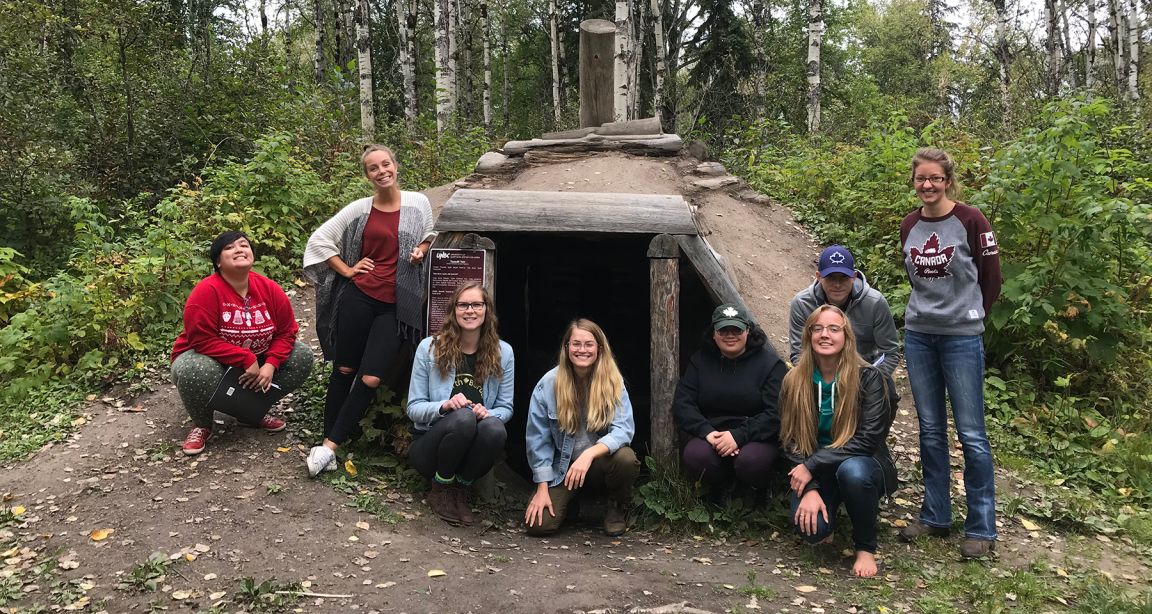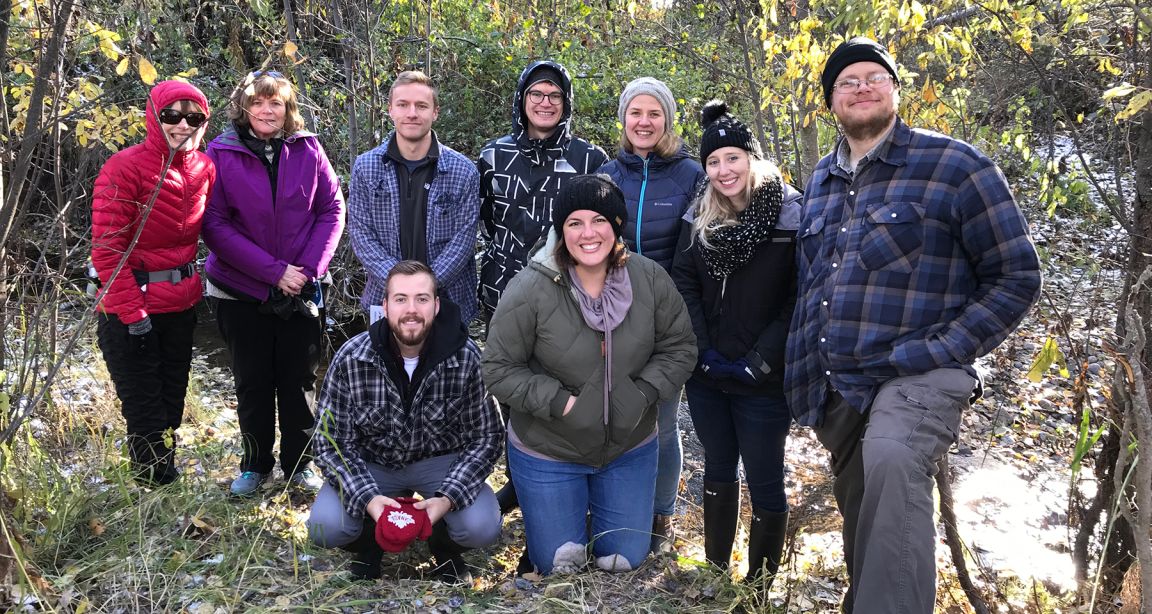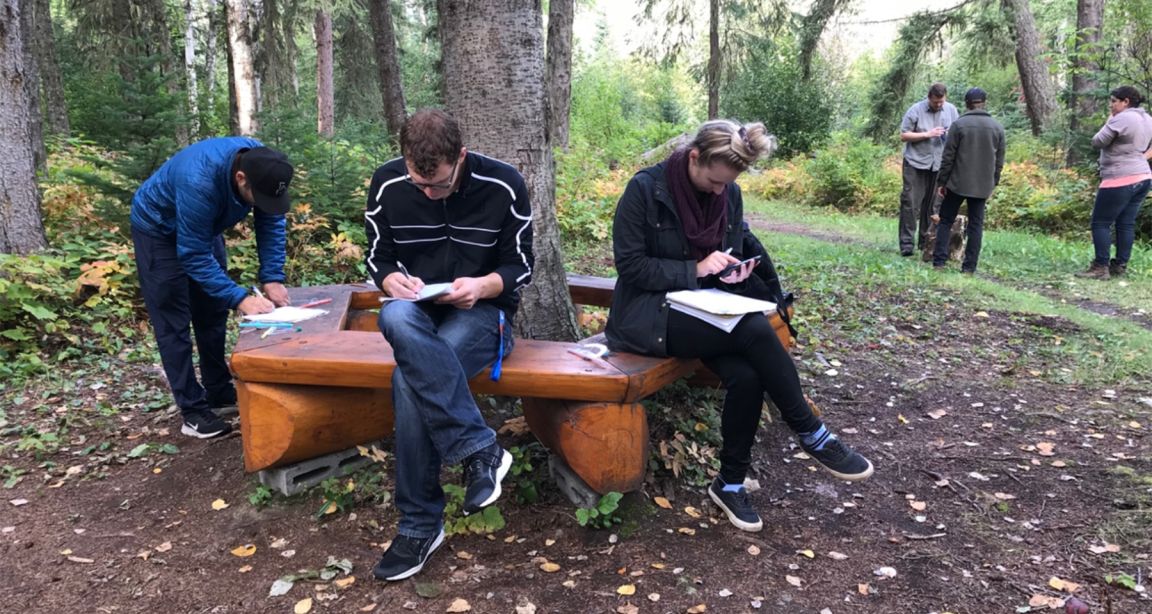
At the pit house in the Forest for the World at UNBC learning about First Peoples Principles of Learning. Our B.Ed. program takes every opportunity to connect to our signature pedagogy People, Place, and Land to sense-make, experience, discover, listen, play, and learn.
Our program is moving into “People, Place, and Land,” a way of being in place that is deeply aware of the connections between ourselves and our students, with each other, and with the spaces we all inhabit. This movement pays attention to the local, to past and future, to language, identity, diversity, and Indigenous ways of knowing. It is rooted in human and more than-human communities.
We are coming alongside People, Place, and Land as a signature pedagogy for the School of Education, as a way of exploring what’s important to know, and how things become known; it helps assess how we are doing and whether our work is authentic, and provides us with multiple points of inspiration and reflection.

In Nechako Lakes working with K-12 students, teachers, and UNBC researchers about the watersheds and community. We are learning about the watershed and how this connects to K-12 learning and curriculum situated in place with SD91 and the Koh-Learning Project.
Shulman (2005) sets out some key layers of a signature pedagogy. These layers are connected conceptually and practically: “signature pedagogies are both pervasive and routine, cutting across topics and courses, programs and institutions” (Shulman, 2005, p. 56) and “form habits of the mind, habits of the heart, and habits of the hand” (Shulman, 2005, p. 59). 1 As applied to People, Place, and Land, the School of Education sees layers of structure from the surface level where we teach and learn with each other from and in place, with space created for students to demonstrate what they know; a deeper level where we bridge theory and practice, including a deep appreciation for Indigenous perspectives; and an implicit level where our beliefs and values about education and being reside.
1 For more information about signature pedagogies, go to the article written by Shulman, L. (2005). Signature Pedagogies in the Professions. Daedalus, 134(3), 52-59. http://www.jstor.org/stable/20027998

The Signature Pedagogy of the UNBC School of Education is People, Place, and Land. We learn in situ (in place) and on the land. We learn together with our cohorts, colleagues, and community to better understand ourselves, our pedagogies, and others in K-12 schools and graduate studies.